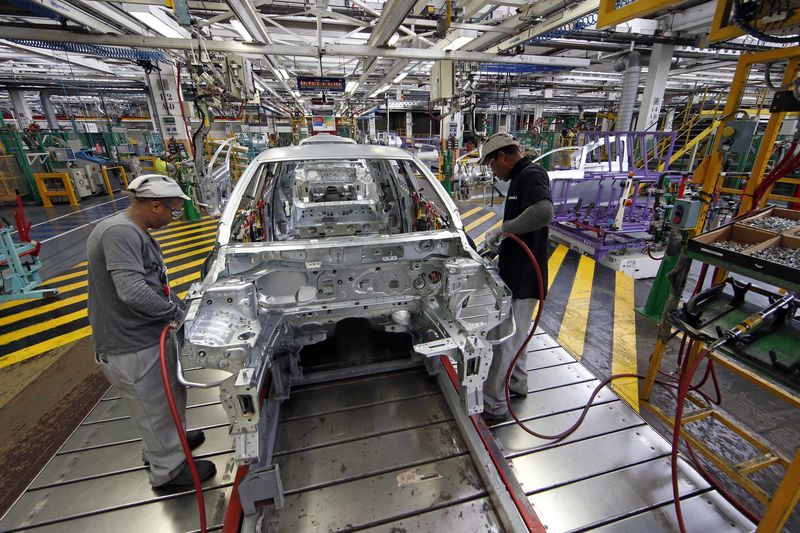By Geoffrey Smith
Investing.com -- The economic news out of the Eurozone continued to deteriorate on Friday, as France reported the sharpest drop in its industrial production in 19 months, while Germany's export engine stuttered again.
French output fell 2.6% in October from September, according to statistics office INSEE, a second straight monthly drop caused largely by a 7.6% decline in output from the energy sector. That is consistent with a series of downward revisions to the country's nuclear power output this year and, more importantly, a long-running strike at some of its biggest refineries that cut their output by 46%.
The country's long-suffering car industry also continued to struggle, with output falling 5.8% on the month. Output from France's auto factories collapsed during the pandemic and has failed to recover convincingly since then, held back by supply chain bottlenecks and longer-term cost issues. Output is still more than 20% below its level immediately before the outbreak of COVID-19.
"Another signal that suggests 4Q GDP could contract," tweeted Christophe Barraud, chief economist and strategist at Market Securities.
The numbers come a day after figures showing that consumer spending in the Eurozone's second largest economy also fell by 2.8% in October, adjusted for inflation.
Earlier, the Eurozone's largest economy, Germany, said its exports had also started the fourth quarter in a weak fashion, falling by 0.6% from September. That was their second straight monthly decline and, in contrast to the usual pattern, September's figures were also revised down to show a drop of 0.7% rather than the 0.5% initially reported.
However, the trade balance improved due to a sharper drop in imports, helped largely by falling prices for oil and gas in the month. As such, the country's trade surplus, a key engine of growth in normal times, rebounded to its highest since Russia's invasion of Ukraine at €6.9 billion (€1= $1.0529).
